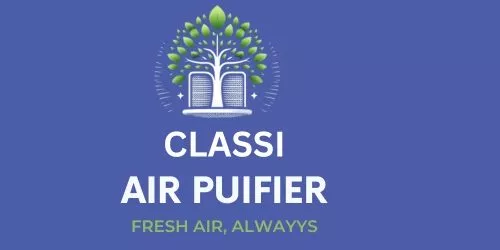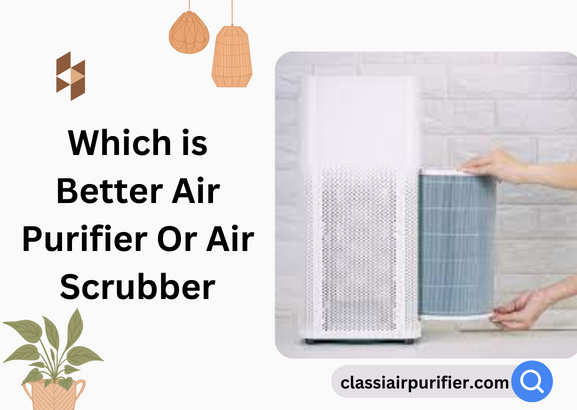If you are looking for air filter ideas, consider using high-quality HEPA filters for maximum efficiency and allergen removal. HEPA filters are designed to capture 99.97% of particles, providing clean and healthy air for your home or office.
When choosing an air filter, opt for one with a high MERV rating to effectively trap tiny particles and improve indoor air quality. Additionally, consider utilizing activated carbon filters to eliminate odors and harmful gases. Regularly changing and maintaining your air filter is crucial for optimal performance and air purification.
By following these air filter ideas, you can create a healthier and more comfortable living environment. Implementing effective air filter ideas can significantly improve the indoor air quality of your space. Proper filtration systems help to remove pollutants and allergens, providing clean and fresh air for occupants. With various options available, selecting the right air filter is essential for achieving optimum results. High-efficiency HEPA filters offer superior particle capture, ensuring a healthier environment. Additionally, incorporating activated carbon filters aids in the removal of odors and harmful gases, further enhancing air quality. Furthermore, the regular maintenance and replacement of air filters are vital for sustained effectiveness. By considering these air filter ideas, you can effectively support a healthier and more pleasant indoor atmosphere.
The Importance Of Air Filters
Air filters are crucial for maintaining clean indoor air quality by trapping particles and pollutants. Regularly replacing or cleaning air filters ensures efficient HVAC system operation and helps in preventing health issues caused by poor air quality. Upgrading to high-efficiency air filters can significantly improve air purity.
Introduction:
Air filters play a crucial role in maintaining clean and fresh air within our living spaces. By trapping dust, allergens, and pollutants, air filters help improve indoor air quality, which in turn promotes better respiratory health and overall well-being. In this article, we will discuss the significance of clean air and the benefits of using air filters to achieve healthier environments.
Significance Of Clean Air:
Access to clean air is essential for our health and comfort. Here are some key reasons why clean air is significant:
- Breathing in clean air reduces the risk of respiratory problems, such as asthma and allergies.
- Improved air quality can enhance sleep patterns, leading to better rest and increased energy levels during the day.
- Clean air promotes better cognitive function and productivity, allowing us to focus and perform tasks more efficiently.
- Reducing the presence of airborne particles and pollutants can benefit individuals with weakened immune systems, including children and the elderly.
Benefits Of Using Air Filters:
Air filters play a vital role in purifying the air we breathe. Here are the key benefits of using air filters:
- Removal of allergens: Air filters effectively capture allergens such as pollen, pet dander, and mold spores, reducing allergic reactions and improving respiratory health.
- Elimination of dust and dirt particles: By capturing dust and dirt particles, air filters help keep surfaces cleaner and reduce the need for frequent dusting and cleaning.
- Trapping harmful chemicals and odors: Air filters can assist in removing odors and harmful chemicals present in the air, enhancing indoor air quality and creating a fresh and pleasant environment.
- Protection against indoor pollutants: Air filters combat various indoor pollutants, including smoke, bacteria, viruses, and volatile organic compounds (VOCs), reducing the risk of health issues associated with these contaminants.
- Extended lifespan of HVAC systems: Regularly using air filters can help prevent dust and debris from accumulating in heating, ventilation, and air conditioning (HVAC) systems. This prolongs their lifespan and improves their overall efficiency.
Investing in high-quality air filters and regularly replacing them ensures that we can enjoy the many benefits they offer. By prioritizing clean air, we contribute to a healthier and more comfortable living environment for ourselves and our loved ones.
Common Types Of Air Filters
When it comes to improving indoor air quality, selecting the right air filter is essential. There are several common types of air filters available on the market, each with its own unique features and benefits. Here, we’ll take a closer look at the different types of air filters, including Fiberglass Filters, HEPA Filters, and Activated Carbon Filters.
Fiberglass Filters
Fiberglass filters are one of the most commonly used types of air filters. They are made of layered fiberglass fibers, allowing them to capture large particles such as dust and lint. These filters are affordable and ideal for basic filtration needs. However, they may not be as effective at capturing smaller particles compared to other filter types.
Hepa Filters
HEPA (High-Efficiency Particulate Air) filters are designed to remove 99.97% of particles that are 0.3 microns or larger in size. These filters are highly effective in capturing allergens, pet dander, pollen, and other airborne particles. They are recommended for individuals with allergies or respiratory conditions, as well as for environments where air quality is of utmost importance.
Activated Carbon Filters
Activated carbon filters are excellent at removing odors, gases, and volatile organic compounds (VOCs) from the air. They consist of a highly porous carbon material that chemically binds to impurities, effectively neutralizing them. These filters are commonly used in air purifiers and ventilation systems to eliminate unpleasant odors and improve indoor air quality.
Factors To Consider When Choosing An Air Filter
When choosing an air filter, several factors need to be taken into consideration to ensure that you select the most suitable option for your specific needs. The air quality needs, filter efficiency ratings, and filter size and compatibility are crucial elements to bear in mind. By carefully evaluating these factors, you can optimize the performance of your air filter and maintain a healthier indoor environment.
Air Quality Needs
Determining your specific air quality needs is the first step in selecting a suitable air filter. Consider factors such as the presence of allergens, pet dander, dust, and airborne particles. Identifying the primary contaminants will guide you in choosing the appropriate filter technology and efficiency level to address these concerns effectively.
Filter Efficiency Ratings
Filter efficiency ratings play a vital role in capturing and removing particulates from the air. Understanding the MERV (Minimum Efficiency Reporting Value) rating system is essential. Higher MERV ratings indicate better filtration and are ideal for capturing smaller particles. Selecting a filter with an efficiency rating that aligns with your air quality needs can help ensure optimal air purification.
Filter Size And Compatibility
Choosing the correct filter size and ensuring compatibility with your HVAC system is crucial for efficient air filtration. Refer to your HVAC system’s manual or consult a professional to determine the correct filter dimensions and type that will fit seamlessly. Using the wrong size or incompatible filter may lead to air leakage and reduced filtration performance.
“` Always remember, an effective air filter is one that aligns with your specific air quality needs, has an appropriate efficiency rating, and is compatible with your HVAC system, ensuring optimal air purification.Diy Air Filter Ideas
When it comes to improving the air quality in your home or workspace, you don’t always have to rely on expensive air purifiers. There are several DIY air filter ideas that are not only cost-effective but also eco-friendly. In this blog post, we’ll explore two such ideas: a homemade air filter using a box fan and the use of natural air purifying plants. With these simple and effective solutions, you can breathe clean, fresh air without breaking the bank.
Homemade Air Filter Using Box Fan
If you’re looking for a budget-friendly way to filter the air in your living space, a homemade air filter using a box fan is an excellent option. Here’s how you can create one:
- Start by purchasing a high-quality furnace filter with a MERV rating of 13 or higher. This ensures that the filter can effectively capture dust, pollen, and other airborne particles.
- Next, take your box fan and remove the front grill. Place the fan on a flat surface with the back facing up.
- Place the furnace filter on the back of the box fan, aligning it with the airflow direction. Secure the filter in place using zip ties or any other suitable fastening method.
- Once the filter is securely attached, flip the box fan over, so the filter is facing downwards. Plug in the fan and turn it on to enjoy cleaner air in your space.
This DIY air filter is a simple yet effective way to trap dust, pollen, and other contaminants, helping to reduce allergies and improve indoor air quality. Remember to replace the filter regularly for optimal performance.
Natural Air Purifying Plants
In addition to using a DIY air filter, incorporating natural air purifying plants into your indoor space can further enhance the air quality. These plants not only filter out harmful toxins but also add a touch of beauty to your surroundings. Here are a few natural air purifying plants to consider:
| Plant Name | Air Purifying Benefits |
|---|---|
| Snake Plant (Sansevieria) | Filters out formaldehyde, benzene, trichloroethylene, and other harmful pollutants. |
| Spider Plant (Chlorophytum comosum) | Removes formaldehyde and xylene from the air, improving air quality. |
| Peace Lily (Spathiphyllum) | Helps to remove toxins such as formaldehyde, benzene, trichloroethylene, and ammonia. |
These are just a few examples of air purifying plants, but there are many more to choose from. Be sure to research each plant’s specific care requirements to ensure they thrive in your space. By incorporating natural air purifiers into your environment, you can create a healthier and more enjoyable living or working space.
Maintaining And Replacing Air Filters
When it comes to maintaining and replacing air filters, it’s essential to adhere to a regular cleaning schedule and be aware of indications for replacement.
Regular Cleaning Schedule
Regularly clean air filters to ensure optimal air circulation and efficiency.
- Inspect filters monthly.
- Vacuum or wash reusable filters every three months.
- Replace disposable filters every 1-3 months.
Indications For Replacement
Recognize when it’s time to replace air filters for better air quality and performance.
- Visible dirt and debris on the filter.
- Decreased airflow or cooling/heating efficiency.
- Increased energy consumption.
New Innovations In Air Filtration
Discover the latest advancements in air filtration technology that promise cleaner and healthier indoor environments.
Smart Air Filters With Monitoring Apps
Experience the convenience of smart air filters equipped with monitoring apps to track air quality in real-time.
- Receive instant alerts on your smartphone about air quality changes
- Control filter settings remotely for optimal performance
- Monitor filter lifespan and receive timely replacement notifications
Uv-c Light Air Purification Systems
Ensure pure air with UV-C light purification systems that eliminate harmful pathogens and allergens.
- Utilize ultraviolet light technology to eradicate airborne pollutants
- Combat viruses, bacteria, and mold spores effectively
- Enhance air quality and overall well-being in your living space
Specialized Air Filters For Specific Needs
Specialized air filters are designed to cater to specific needs and address specific concerns in your indoor air quality. Whether you suffer from allergies, are concerned about smoke or odor, or simply want to ensure the cleanest, freshest air possible, there are air filters available to meet your individual requirements.
Allergen-reducing Filters
Allergen-reducing filters are specially designed to trap and remove common allergens from the air such as pollen, dust mites, and pet dander. These filters are highly effective in improving indoor air quality for allergy sufferers, providing relief from seasonal allergies and asthma.
Smoke And Odor Eliminating Filters
If you live in a high-smoke area or have smokers in your household, smoke and odor eliminating filters can help you breathe easier. These filters are specifically designed to capture and neutralize smoke particles and other unpleasant odors, such as cooking smells and pet odors, leaving your air fresh and clean.
Investing in specialized air filters that cater to your specific needs is a smart way to enhance your indoor air quality and promote a healthier living environment. Whether you require allergen-reducing filters or filters to combat smoke and odors, there is a solution available to meet your requirements.
Environmental Impact Of Air Filters
Air filters play a crucial role in ensuring the air we breathe is clean and free from harmful particles. However, it’s essential to consider the environmental impact of air filters. From recyclability to energy efficiency, let’s explore how air filters can affect our environment.
Recyclability Of Different Filters
When choosing air filters, consider the recyclability of different materials used in their construction. Some filters, such as fiberglass filters, are not recyclable and contribute to landfill waste. In contrast, HEPA filters are typically made from recyclable materials, making them a more environmentally friendly option. Additionally, washable filters provide a reusable alternative, reducing the overall environmental impact of air filters.
Energy Efficiency Considerations
Energy efficiency plays a vital role in the environmental impact of air filters. High-efficiency filters might initially consume more energy due to their dense construction, but they can effectively trap particles, leading to cleaner air and reducing the need for energy-intensive HVAC systems. Electrostatic filters use an electrical charge to capture particles, potentially saving energy in the long run. Considering the energy efficiency of air filters can help minimize their environmental footprint.
Frequently Asked Questions For Air Filter Ideas
What Are The Benefits Of Using Air Filters?
Air filters help improve indoor air quality by trapping dust, pollen, and other particles, reducing allergens and respiratory issues.
How Often Should Air Filters Be Replaced?
It is recommended to replace air filters every 1 to 3 months, depending on usage and filter type, to maintain efficiency.
Can Air Filters Help With Energy Efficiency?
Yes, clean air filters allow HVAC systems to operate more efficiently, reducing energy consumption and lowering utility bills.
Do Air Filters Help Prolong The Life Of Hvac Systems?
Yes, regular air filter changes prevent dirt buildup, leading to improved system performance and longer lifespan for HVAC units.
Conclusion
These air filter ideas provide you with practical ways to improve your indoor air quality. By implementing these tips, you can ensure a healthier living environment for you and your family. Remember to regularly change your air filters, consider using high-efficiency filters, and keep your home clean to reduce allergens and other pollutants.
With these simple yet effective steps, you can enjoy fresh and clean air all year round. Start implementing these ideas today and breathe easier tomorrow.


